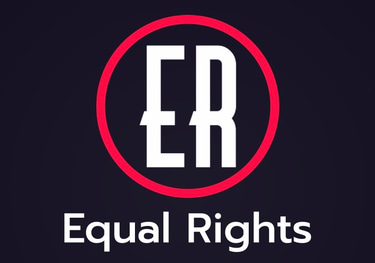The Importance of Allyship in Supporting Marginalized Communities
Kylo B
5/3/2024
The Importance of Allyship in Supporting Marginalized Communities
In today's increasingly diverse and interconnected world, the concept of allyship has emerged as a crucial framework for fostering inclusion and support for marginalized communities.
Allyship refers to the practice of individuals with privilege and power advocating alongside and using their influence to amplify the voices of those who face systemic oppression and discrimination.
The importance of allyship cannot be overstated—it serves as a catalyst for social change, equity, and justice.
This article explores the significance of allyship, its key principles, and how it can effectively support marginalized communities.
Understanding Allyship
Allyship is rooted in empathy, solidarity, and proactive engagement. It involves recognizing one's privilege and leveraging it to dismantle systemic barriers that disenfranchise others.
Allies actively educate themselves about issues affecting marginalized groups, listen to their experiences without judgment, and work to challenge societal norms that perpetuate inequality.
An essential aspect of allyship is understanding that marginalized communities are not monolithic.
They encompass diverse identities such as race, ethnicity, gender, sexual orientation, disability, socioeconomic status, and more.
Effective allyship requires acknowledging these intersecting identities and the unique challenges each group faces.
Key Principles of Allyship
Listening & Learning: Allies prioritize listening to marginalized voices and learning from their experiences. This involves seeking out resources, literature, and perspectives that broaden their understanding of systemic injustices.
Amplifying Marginalized Voices: Allies use their platforms and influence to amplify the voices of marginalized individuals and communities. This can involve sharing their stories, advocating for policy change, or promoting their work and achievements.
Taking Action: Allyship is not passive. Allies actively engage in actions that challenge discrimination and promote equity. This may include participating in protests, signing petitions, and supporting organizations that advance social justice causes.
Accepting Feedback & Accountability: Allies recognize that they may make mistakes or inadvertently perpetuate harmful behaviors. They remain open to feedback from marginalized communities and take accountability for their actions by continuously reflecting and improving.
Benefits of Allyship
Collective Impact: Allyship strengthens movements for social change by bringing together diverse voices and resources. It fosters collaboration and solidarity among individuals and groups striving for a more just society.
Cultural Transformation: Allies play a crucial role in shifting societal attitudes and norms. By challenging stereotypes and advocating for inclusivity, they contribute to creating more accepting and equitable environments.
Personal Growth: Engaging in allyship can be transformative for allies themselves. It deepens empathy, expands perspectives, and cultivates meaningful relationships across differences.
Challenges & Considerations
Allyship is not without challenges. It requires a sustained commitment to self-education, humility, and uncomfortable conversations.
Moreover, performative allyship—superficial gestures without genuine intent—can be detrimental and undermine the cause. Allies must prioritize authenticity and genuine solidarity in their actions.
Allyship is a powerful force for social change and inclusivity. It recognizes that advancing the rights and dignity of marginalized communities is a collective responsibility.
By embracing the principles of allyship and actively advocating for justice, individuals can contribute to creating a more equitable and compassionate world.
Together, we can build bridges, challenge oppression, and create a future where everyone feels valued and respected, regardless of their identity or background.
